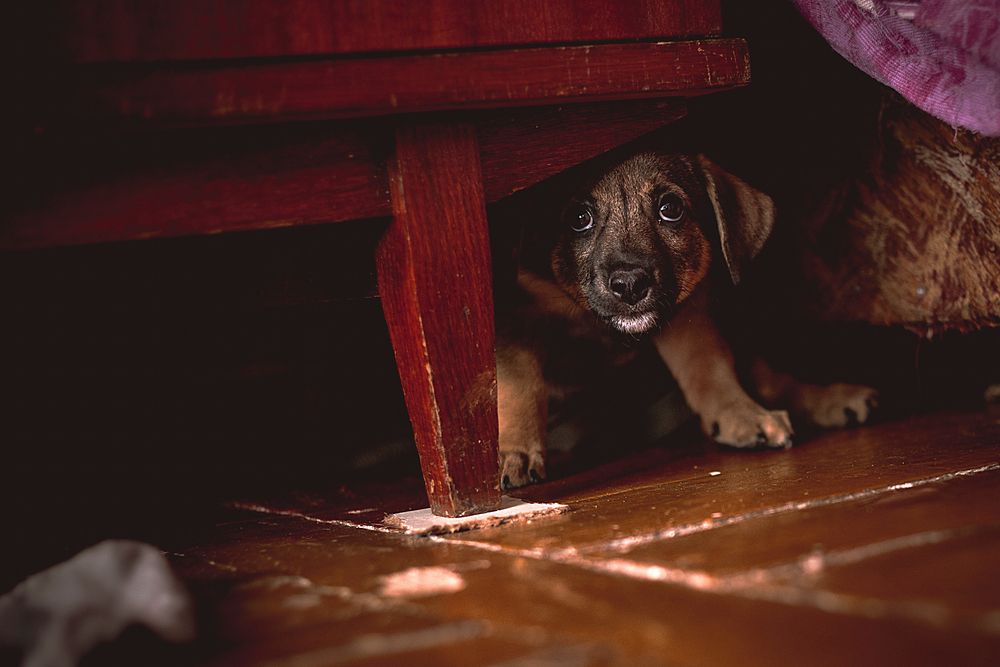
The best NYC positive-reinforcement dog trainers have their own two-story storefront in the East Village that features group classes, play groups, and private lessons. While they operate a brick-and-mortar storefront with a boutique that sells treats and training tools, they also work with clients virtually. Many are located in selected parts of Manhattan. Regardless of location, there are plenty of positive-reinforcement-based dog trainers to choose from.
Although some trainers may swear by using punishment methods such as wrapping a rope around the neck of a dog, they also warn against this. Dogs don't react to drastic or mild corrections that exceed their size and strength. Some training methods can even make unwanted behavior worse. Instead of using harsh methods, a positive-reinforcement-based approach can be as effective as harsh, painful punishment.

Although Cesar Millans and other positive-reinforcement dog trainers aren't going anywhere, the popularity of this approach is growing faster than ever. Karen Pryor Academy Waltham, Mass. Clicker Expos feature hundreds of trainers sharing their tips and tricks with dogs. Fenzi is founder of Clicker Academy. Fenzi has been practicing his methods for more than twenty years and is considered one of best dog trainers around.
When using positive-reinforcement methods, dog trainers will use intermittent, rather than continuous, reinforcement. Clickers can be used to encourage the desired behavior during these sessions. Trainers may prefer to use markers words. However, you need to ensure that your clicker is fully charged prior each session. If you want to get the most from this technique, you must be consistent. This will help your dog to trust you.
In addition to consistent, positive-reinforcement dog trainers should keep treats near at all times. You might reward your pup with treats even when you aren't in training. You might want to reward your dog for doing a certain thing. Remember that dogs can read body language better than us, so keep your dog happy. Brighten your eyes and be excited.

Positive-reinforcement dog trainers will also teach you how to keep the dogs happy. A positive-reinforcement session involves giving treats to your pup every time he performs a particular behavior. This type is most effective when it's done with the right timing. If your dog sees that you are enjoying his training session, he will be more inclined to follow your orders and won't run away if it's late.
Some positive-reinforcement dog trainers may be willing to work with a client's dog if they're able to use treats as a means of rewarding a behavior. This is the best way to make a dog a happy and well-rounded pet. You can find many wonderful resources online to help you train your pet positively. Do not let your dog make the decision to bite you. It's better to be responsible.
FAQ
How do I know if my dog has fleas?
If you notice your pet scratching at its fur, licking itself excessively, or looking dull and unkempt, then chances are he/she may have fleas.
Flea infestations can also be detected if your pet shows any redness.
It is important to take your pet immediately to a veterinarian for treatment.
What is pet insurance?
Pet Insurance provides financial protection for pets when they are sick or injured. It also covers routine medical care like vaccinations, spaying/neutering and microchipping.
You can also get emergency treatment for your pet if it is in an accident or becomes sick.
There are 2 types of pet insurance.
-
Catastrophic - This type of insurance pays for medical expenses if your cat suffers serious injuries.
-
Non-catastrophic – This type covers routine costs for veterinary care, including vaccinations, microchips or spays/neuters.
Many companies offer both catastrophic as well as non-catastrophic coverage. Others provide only one.
These costs are covered by a monthly payment. This amount will depend on how much you spend to care for your pet.
The price of insurance depends on which company you choose. Shop around before making a purchase.
If you purchase multiple policies, some companies offer discounts.
You can transfer an existing pet insurance plan from another company to a new one.
If you do not want to buy pet insurance, you'll need to make all of the payments.
You can still save money. Ask your veterinarian for information about discounts.
If you take your pet to the vet often, he might not be impressed.
If you prefer to pay for a pet, there are many options.
You must always read the fine print, regardless of what type of insurance policy you purchase.
It will let you know exactly how much your coverage is worth. If you do not understand something, contact your insurer immediately.
Which breed is easier to train, cats or dogs?
Both. It all depends on the way you approach training them.
Children learn faster when you reward them for their good behavior. You can ignore them if they don’t listen. They’ll eventually start to ignore your commands.
There is no right answer. The best way to teach your cat/dog is the one you choose.
Which pet is your favorite?
The best pet is one that you love. There is no single right answer. Every individual has his/her own opinion on the best pet.
Some believe that cats are better than their canine counterparts. Others argue that dogs are more loyal to their owners and more affectionate. Others disagree and argue that birds make the most wonderful pet.
However, no matter what pet you choose to have, you need to decide which pet is best for you.
If you're friendly and outgoing then a dog is right for you. A cat might be the best option for you if your personality is reserved and shy.
Consider the size of your house or apartment. If you have a small apartment, you will need a smaller pet. You'll need more space if you have a larger home.
Last but not least, pets require a lot of attention. Pets need to be fed frequently. You should take them for walks. You should also brush and clean them.
You'll be able pick the best pet for you if you have all of these knowledge.
What age is it safe to have a pet as a child?
Pets should not be owned by children under 5 years of age. Young children shouldn't have pets other than cats and dogs.
Most kids who have pets end up being bitten by them. This is particularly true for small dogs.
Pit bulls and other breeds of dog can be very aggressive towards animals.
Even though dogs may appear friendly, this doesn't mean they won't attack other animals.
It is important to train your dog if you get a pet dog. Your child should always be supervised while playing with the dog.
How much should I budget for my pet?
The best rule of thumb is to budget $200-$300 each month.
This can vary depending on where one lives. In New York City, for example, you would probably spend around $350 per month.
In rural areas, however, you might only need to spend $100 per month.
It is crucial to remember that quality products such as collars and leashes are important.
You should also think about investing in a crate for your pet. This will keep your pet safe when he is being transported.
Statistics
- Here's a sobering reality: when you add up vaccinations, health exams, heartworm medications, litter, collars and leashes, food, and grooming, you can expect a bill of at least $1,000 a year, according to SSPCA. (bustle.com)
- In fact, according to ASPCA, first-year expenses can sum up to nearly $2,000. (petplay.com)
- Monthly costs are for a one-year-old female mixed-breed dog and an under one-year-old male domestic shorthair cat, respectively, in excellent health residing in Texas, with a $500 annual deductible, $5,000 annual benefit limit, and 90% reimbursement rate. (usnews.com)
- A 5% affiliation discount may apply to individuals who belong to select military, law enforcement, and service animal training organizations that have a relationship with Nationwide. (usnews.com)
- It's among a relatively few companies that provide policies with a full (100%) coverage option, meaning you are not responsible for any co-payment of bills. (money.com)
External Links
How To
How to train a pet cat
To train your cat, you should first understand what kind of animal he/she really is. Cats are intelligent and have complex brains. Cats are intelligent and highly emotional. If you want to make sure that your cat behaves well, then you must take into consideration his/her personality. You should know how to treat your cat.
Remember that cats are independent beings. It means that they do not like to be told "no." So if you tell them "no," they may get angry at you. This is why you should never hit your cat when he/she does something wrong. You can love your cat, but not as a human being.
If you suspect that your cat may have some issues, then it is best to work together to fix them. Talk to your cat calmly and gently. Avoid yelling at him/her. Remember that yelling makes him/her feel bad. It is not possible to force your cat or dog to eat. Sometimes your cat may refuse to eat. Give treats to him/her when this happens. Overeating could result in overeating.
Keep your cat clean. Wash him/her thoroughly every day. Use a wet cloth to wipe off dirt and dust. Check to make sure your cat is free of fleas. Flea bites can lead to skin irritation and allergic reactions. Flea bites can cause severe skin irritation so you need to use a flea shampoo.
Cats are social animals. Cats enjoy being with other people. That is why you should spend quality time with your cat. You can play with your cat, give him/her food, cuddle and brush him/her. These activities will make your cat happy.
It is important to start training your cat early if you want to be successful. Start training your kitten when he/she is only two weeks old. The best age to begin training your cat is around three months old. This is the best age to start training your cat.
When teaching your cat tricks, you should go through each step step by step. If you want to teach your cat to sit down, then show it/him the chair. Then, reward your cat by giving him/her a treat. Keep repeating these steps until your cat gets it.
Remember that cats are intelligent. Cats are intelligent and can learn how to accomplish tasks. However, they still require patience and persistence. Your cat won't be able to do a task instantly. Give your cat plenty of practice before giving up.
Remember that cats can be wild animals. They are naturally curious and playful. You should not let your cat run wild as he/she may accidentally knock over objects. Your cat should be kept in a safe space where he/she will not hurt himself/herself.